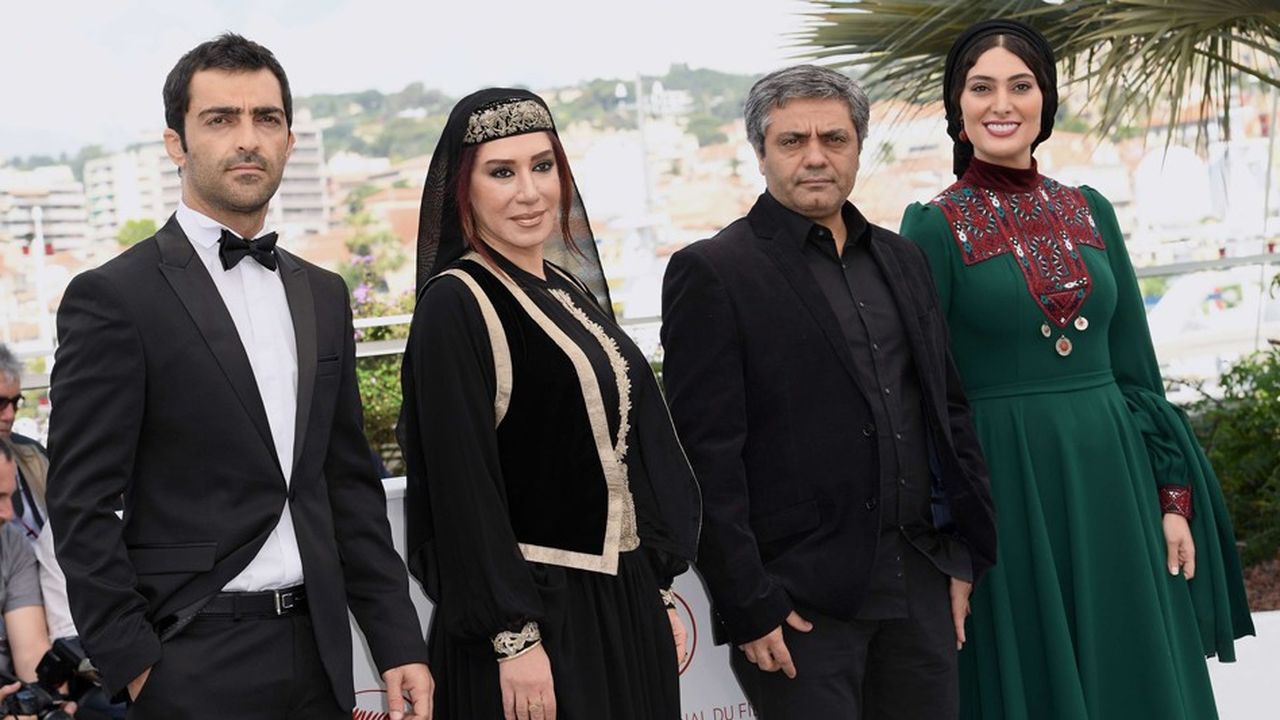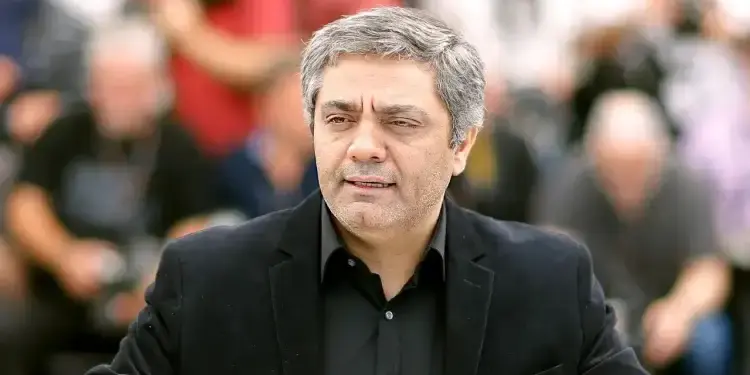Director Mohammad Rasoulof left Iran without official authorization. After an exhausting trip, he remains uncertain if he will be able to attend the Cannes Film Festival with his film “The Seed of the Sacred Fig”
In a recent reversal of the situation, Mohammad Rasoulof, an emeritus director of Iran, surprised the world of cinema by illegally leaving his country for Europe. While his conviction to a prison sentence seemed to compromise any possibility of seeing him in Cannes or making films in the near futureits presence in Europe opens up new perspectives. In a press release published since its new location, Rasoulof shares its reflections and challenges, offering a rare and poignant overview of its tumultuous journey.
In a declaration issued from a non -disclosed place, Rasoulof describes the trying repression of his team in Iran and asks the international cinematographic community “effective support”.
Communiqué:
May 13, 2024 – The famous Iranian filmmaker Mohammad Rasoulof confirmed that he has managed to leave his native country and currently lies in a place not disclosed in Europe, suggesting the possibility that he can be present at the world first film of his last film The Seed of the Sacred Fig, projected in competition at this year’s Cannes Film Festival.
Jean-Christophe Simon, CEO of Boutique and Parallel 45 films, says: ” We are very happy and relieved that Mohammad has arrived safely in Europe after a dangerous trip. We hope he will be able to attend the first of The Seed of the Sacred Fig in Cannes despite all attempts to prevent it from being present in person. »»
The news of her clandestine departure occurs shortly after his conviction to eight years in prison as well as lashes, a fine and the confiscation of his property by the Revolutionary Tribunal of Iran. As Rasoulof’s lawyer said Babak Paknia, on X after the verdict, ” The main reason for this conviction is the signing of declarations and the production of films and documentaries. According to the court, these actions were examples of collusion in order to commit a crime against the country’s security. »»
Rasoulof has been forbidden to leave Iran since 2017. He has served a prison sentence from July 2022 to February 2023, and was released in advance due to a general amnesty for thousands of prisoners in Iran following generalized demonstrations. Shortly after his release, it was informed that a new file was open against him, this time concerning his film There is no evil/the devil does not exist (2020) Who, in his forced absence, won the gold bear at the Berlin International Film Festival.
Rasoulof is no stranger to Cannes, having presented Bye (2011), Manuscripts do not burn (2013) and An honest man (2017) during the festival. All his films take a critical look at the consequences of life under an authoritarian regime. The identity of the distribution and the team as well as the details of the plot and the script for his new film were kept secret due to fears of reprisals on the part of the Iranian regime.
Declaration by Mohammad Rasoulof (dated May 12, 2024):
“” I arrived in Europe a few days ago after a long and complicated trip.
About a month ago, my lawyers informed me that my conviction to eight years in prison had been confirmed on appeal and would be implemented without delay. Knowing that the news of my new film would be revealed very soon, I undoubtedly knew that a new penalty would be added to these eight years. I didn’t have much time to make a decision. I had to choose between the prison and leave Iran. With a heavy heart, I chose exile. The Islamic Republic confiscated my passport in September 2017. Consequently, I had to leave Iran in secret.
Of course, I strongly oppose the recent unfair judgment against me which forces me to exile. However, the Judicial System of the Islamic Republic has made so many cruel and strange decisions that I do not feel in the right to complain about my sentence. Death penalties are executed while the Islamic Republic targets the lives of demonstrators and civil rights activists. It’s hard to believe, but at the same time I write this, the young rapper Toomaj Salehi is detained in prison and was sentenced to death. The scope and intensity of repression have reached a point of brutality where people expect news from another odious government crime every day. The criminal machine of the Islamic Republic continuously and systematically violates human rights.
Before the intelligence services of the Islamic Republic were informed of the production of my film, some of the actors managed to leave Iran. However, many actors and agents of the film are still in Iran and the intelligence system press them. They suffered long interrogations. The families of some of them were summoned and threatened. Due to their appearance in this film, judicial affairs were brought against them and they were prohibited from leaving the country. They searched the office of the director of photography, and all his work equipment was carried away. They also prevented the film’s sound engineer from going to Canada. During the interrogations of the film team, the intelligence forces asked them to put me pressure to remove the film from the Cannes Film Festival. They tried to convince the film team that they were not aware of the history of the film and that they had been manipulated to participate in the project.
Despite the vast limitations I faced, as well as my colleagues and friends, during the production of the film, I tried to reach a cinematographic narration which is far from the narration dominated by censorship in the Islamic Republic, and closer to its reality. I am convinced that restricting and repressing freedom of expression cannot be justified even if it becomes a stimulant for creativity, but when there is no way, a path must be traced.
The global cinematographic community must ensure effective support for creators of such films. Freedom of expression must be defended, clearly and strong. People who courageously and disinterested in censorship instead of supporting it are assured of the importance of their actions by supporting international film organizations. As I know from personal experience, this can be invaluable help to allow them to continue their vital work.
Many people have contributed to the production of this film. My thoughts are with all these people, and I fear for their safety and well-being. »»
Last night, on his Instagram account, Mohammad Rasoulof also published:
“” Seven years ago for the second time, you had my passport.
Two years ago, you entered my house for the second time and you took everything you could with you.
Last year, with my lawyer, we went several times in different institutions, but you said that I was not allowed to have a passport. You did not know that my identity is not in my passport.
If you think that the borders of Iran are in your hands, you sleep deeply. If geographic Iran suffers under the boots of your religious tyranny, cultural Iran is alive in the common spirit of millions of Iranians who have been forced to leave Iran because of your oppression and your barbarism and no power can impose its will. From today, I am a resident of Cultural Iran. A land without borders that millions of Iranians have built with an ancient history and culture in every corner of the world. And they are impatiently waiting to bury you and your oppression machine in the depths of history. So like a coffin of this earth, a new life will begin.
The story of what I went through on this path remains for a better time.
Now I have to finish the latest technical post-production steps from The Seed of the Sacred Fig.
I am grateful to my friends, parents and people who helped me get out of the border and reach a safe place in this difficult and long journey with kindness, altruism and sometimes risking themselves … I am alive to tell you … »»


Faced with these unbearable injustices, it is simply inadmissible that a man, an artist, is targeted in this way for having exercised his fundamental right to freedom of expression and artistic creation. These repressive acts reveal an authoritarian desire to muzzle the voice of dissent and to stifle any form of critical thinking. It is scandalous to see how authoritarian regimes allow themselves to flout the most basic principles of democracy in the name of their own political survival. The question that arises is: why the simple act of creating, of giving life to ideas and stories, has become a crime liable to heavy sorrows and brutal persecution? These attacks on freedom of expression and freedom of creation are a direct attack on human dignity and universal consciousness. It is our duty, as citizens of the world, to forcefully denounce these abuses of power and to relentlessly defend the fundamental values of democracy and human rights.
Neïla Driss








